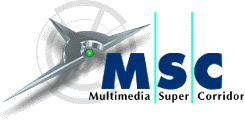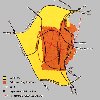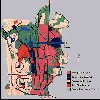|
|
|
We Buy, Sell, Let & Rent On Your Behalf |

This page was intended to summarize the facts and figures of the MSC from the MSC homepage.
WHAT IS THE MSC?
Malaysia has created the Multimedia
Super Corridor (MSC) - a world-first,
world-class act - which is a length of greenfield "corridor", 15 kilometers wide
and 50 kilometers long (9 by 30 miles - roughly the size of Singapore) located
30km (20mi) south of the capital.
This corridor stretches from the Kuala Lumpur City Center (KLCC) - itself an intelligent precinct - which houses the world's tallest buildings, down south to the the future federal administrative city Putrajaya and the site of the region's largest international airport, the Kuala Lumpur International Airport (KLIA). The Prime Minister of Malaysia is scheduled to move his office to Putrajaya in June of 1999, and other departments will follow soon thereafter.
WHY AN "MSC"?
The MSC is an ambitious plan to transform rubber and palm-oil plantations into
Southeast Asia's Silicon Valley bound by a fiber-optics network, providing
high-speed computer links between
Cyberjaya,
Kuala Lumpur, the
KLIA and a new administrative
capital under construction called
Putrajaya. All
in all, Malaysia has committed a massive RM48bn in investment for the MSC hailed
as Malaysia's stepping stone to developed-nation status by 2020. The Malaysian
government has set a target of attracting 50 world-class companies to the MSC by
2003.
Vendors from the information superhighway - from microchip designers and programmers to electric publishers, television and movie production houses and Internet service providers - can set up shop within the corridor. Malaysia's Prime Minister, Dr Mahathir, described the corridor as "a global test-bed" for the new roles of government, new cyber laws and guarantees, collaboration between government and firms, companies and companies, new broadcasting, new types of entertainment, education and delivery of health care.
WHAT GOES ON IN THE MSC?
There are 7 flagship applications slated for the MSC:



